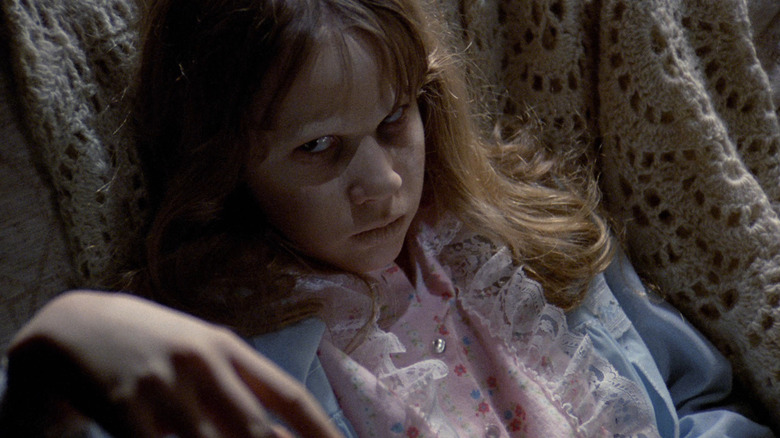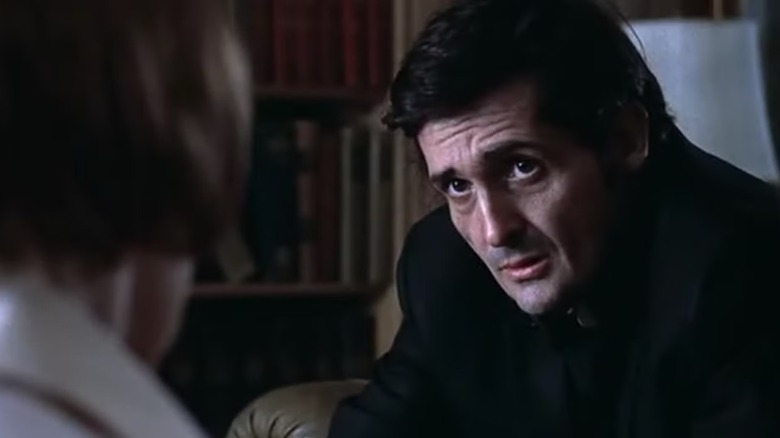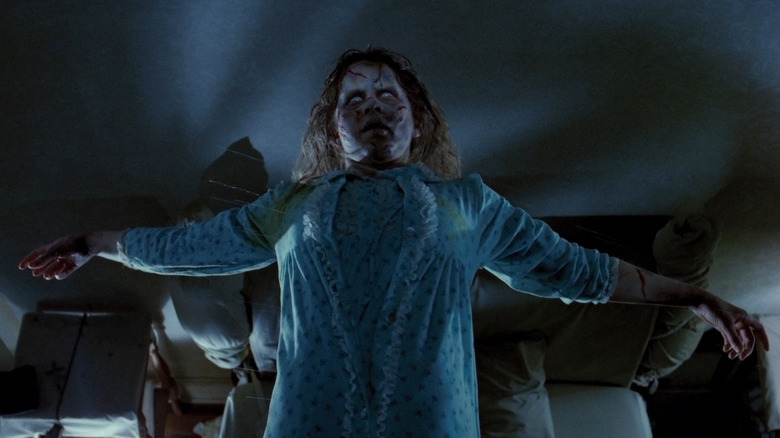It's 2025 And I Just Watched 1973's The Exorcist For The First Time – These Are My Honest Thoughts
I'm a massive cinephile. I spent close to a decade exploring the most obscure movies that inspired George Lucas and other "Star Wars" creatives for StarWars.com's "Cinema Behind 'Star Wars'" column. I feel like I can talk film with the best of them. Sometimes, though, I find I have the most bizarre holes in my movie viewing — like when I realized I'd never seen "The Exorcist."
I honestly couldn't give you a single good reason why I hadn't seen it — other than there are so many movies out there that it's literally impossible to watch them all, even if, like me, you try to watch at least one new film a day. (Ask my wife or kids, however, and they'll tell you I've seen everything.) After watching — and loving — "The French Connection" decades ago, William Friedkin's long been on my list of directors to take seriously. Nevertheless, his 1973 classic just missed me.
Until now.
To this point, I only knew the film for its highlight reel moments (Linda Blair's head twisting around, Max Von Sydow shouting about the power of Christ, etc). Hence, I didn't expect it to open at an archeological dig in the Middle East, with Sydow's Father Merrin searching for something. His faith perhaps? Evidence of a god? It's a tantalizing metaphor. After this, he disappears for almost the entire movie, which was another surprise. I thought he was the sort of actor you tried to put in every frame of your film if you had him. (Then again, I recently rewatched "Conan The Barbarian," and Sydow makes but a single, brilliant appearance.)
Instead, the film really belongs to Jason Miller's Father Karras and Ellen Burstyn's Chris. Father Karras is a priest who also trained as a psychologist, but he's slowly losing his faith as his mother dies. Chris, meanwhile, is an actor whose daughter Regan (Blair) is harming herself in terrifying ways that the medical community can't explain.
The Exorcist is a compelling study of faith
Spoilers for "The Exorcist" ahead.
"The Exorcist" is a true slow burn, and the horror actually lies in the helplessness of these characters rather than the demon possessing Regan. Burstyn screaming at doctors who can't figure out what's wrong with her daughter, but assure her what she thinks is wrong is definitely not, is the most heartbreaking and terrifying aspect of the film. How does a rational person run out of options to the degree that they'd be willing to abandon reason and opt for an exorcism? And how would their core belief system be shaken when it works? That's truly unsettling.
Add to that a priest who thinks exorcisms are absurd, has been trained in psychiatry, and confesses that he doesn't believe in a higher power. Then, suddenly, he's shown something practically undeniable. Can he still deny it? Is his faith restored? Even he's not sure. These twin stories, haunting as they are, form the foundation the effects-laden climax is built upon. I don't think it would work without all that faith-questioning.
Mind you, the ending is a whirlwind, no doubt about it. I'm sure the conclusion is what made people keep coming back for more, turning "The Exorcist" into a true phenomenon. (It's still the 38th highest-grossing R-rated film ever.) But for all its intensity and spectacle, the thing that struck me the most about the ending was its moral ambiguity and delicacy.
After Merrin is killed by the presence possessing Regan, Karras flies off the handle and starts choking Regan's body, demanding the spirit take him instead. His eyes go green as he's possessed, and he leaps out a window to his death. Another priest is there, attempting to give him the Last Rites. In Catholicism, death by suicide is a mortal sin and a path to Hell. But there are layers of complication, given Karras's faith (?) and self-sacrifice for Regan. Then there's the matter of the evil spirit within him. Did Karras willingly end his life? Or was the spirit trying to kill him as it had killed Regan's other caretakers?
The Exorcist remains popular and enduring for a reason
Through the circumstances of Karras' death, the ending really asks you, without a single word spoken, to wonder if this would be enough to gain him admission to the Heaven he and Merrin purported to believe in. Really, the entire film raises this question of faith and dogma (especially since the actual exorcism didn't seem to really work...).
I ended up watching "The Exorcist" twice so I could write this. I really had to chew on it and found that it was terrific — and, quite honestly, much better than I expected it to be. It's retained its enduring power for more than 50 years for a reason. It has deep layers of story and raises complicated questions about faith and existential humanity. And it's a really creepy movie about demonic possession to boot, with some truly great performances. Indeed, despite being a young teenager at the time, Blair is absolutely incredible and really sells the entire movie. In fact, I was shocked by some of the things she acted out in the name of getting the film made.
If you're going to visit this one for the first time, don't expect a big, long scarefest where two priests spend the whole film trying to cast out a demon, which is a silly expectation as I think back on it. Rather, you should expect something more mature than the kind of gore and effects-driven horror movies we get these days. It will even make you think about your own mortality (and maybe those of your kids), as well as how fast your sanity might slip away if a loved one started acting in ways that defy rational, scientific explanation. Perhaps you'd start thinking about unorthodox treatments, too.
Like calling an exorcist.


